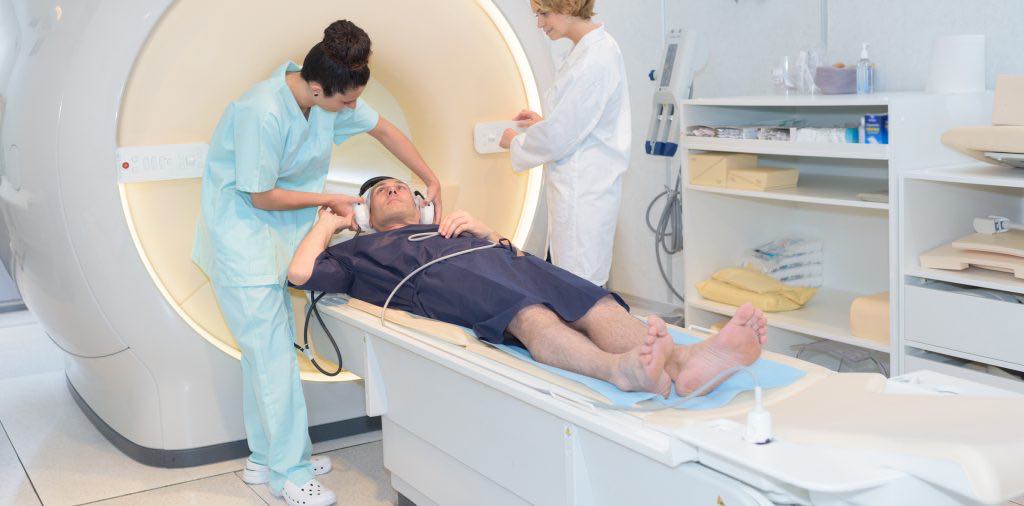Magnetic resonance imaging (MRI) is a nonsurgical procedure used to obtain internal body images without the use of radiation. The MRI machine uses magnets, radio waves, and a computer to create and display the scans. This imaging test can assist in diagnosing injuries or more serious diseases in the brain, spinal cord, and internal organs. Doctors might suggest an MRI if they suspect muscle tears or more severe conditions such as herniations, tumors, or heart disease. This scan can also be used to monitor certain conditions and determine the effectiveness of current treatment methods.
A radiology technician will perform the scan at a hospital or outpatient imaging facility. Your scan can take 30 minutes to two hours to complete, depending on the reason for the procedure. Most patients are not sedated during the procedure. However, you may be prescribed a mild sedative if it is painful or uncomfortable for you to lay still for long periods of time. Additionally, if you have claustrophobia or PTSD, your doctor might give you medication to help your anxiety. After your MRI, a radiologist will interpret your results and send them to your doctor.
Are there alternatives to an MRI?
If your doctor tells you that you need an MRI, it’s usually because they need to do further investigation to provide an accurate diagnosis. Two common alternatives to this procedure include CT scans or ultrasounds. Ask your doctor if either of these alternatives would be a good option for your specific situation.
- CT Scan – A CT scan is an alternative test to an MRI but does use radiation. A doctor will use an X-ray machine hooked up to a computer to create a series of internal images of your body. The computer can then combine the images to create a three-dimensional view of your internal organs and structures. A CT scan can take several minutes whereas an MRI can take an hour or longer.
- Ultrasound: An ultrasound uses sound waves to provide internal body images. Much like an MRI, an ultrasound does not use radiation. An ultrasound can help examine internal organs and provide diagnoses for muscle and joint injuries and conditions. Also, this scan can be an alternative for patients who might experience anxiety or symptoms of claustrophobia from a closed MRI machine.
The type of test you get will depend on your personal health and your doctor’s recommendations. You can always ask your doctor why they’re recommending any test. If you’re unsure about their recommendations, feel free to get a second opinion.
How much should you pay for an MRI?
The price that you pay for your MRI will vary depending on a variety of factors. These include whether you have health insurance, who you choose to perform your scan, and where you choose to have the procedure done. With all of those variables, it can be difficult to find a fair price for your imaging test. Researching your procedure beforehand could help save you money on your procedure. Visit New Choice Health’s MRI cost page to learn more about how much you should expect to pay for your scan.







